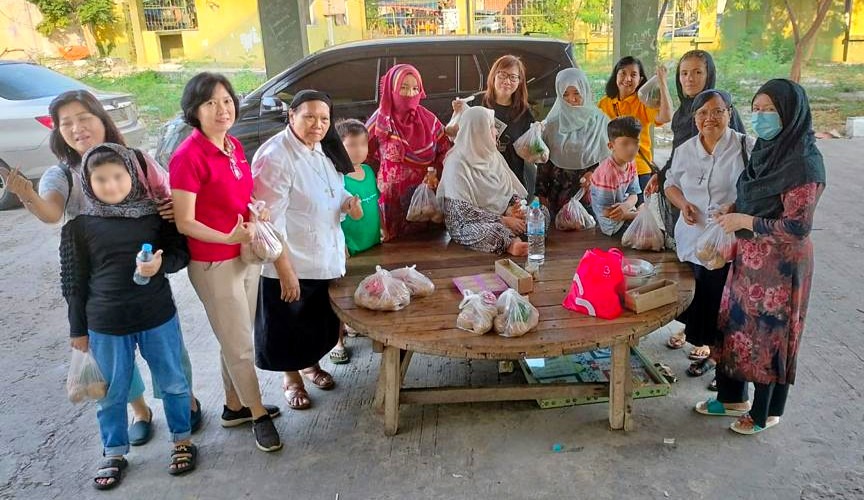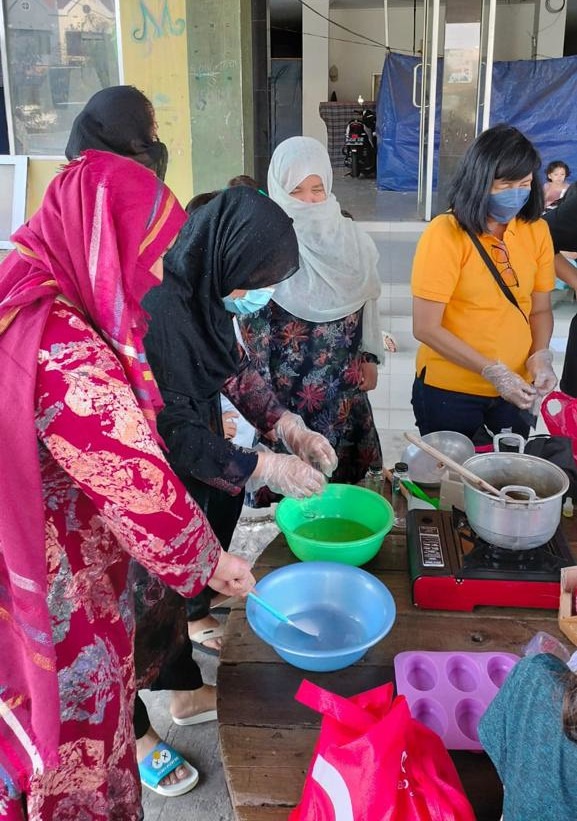
After about a year of accompanying the Afghan children, we felt compelled to get to know their mothers, who had a direct influence on their lives. When we finally met, it was evident from the weight on their faces that they were carrying a heavy burden. These women have experienced a lot of sadness and suffering. Communication was not easy because of the language barrier and their lack of openness, perhaps because they also did not know each other. Despite these obstacles, we were able to have a loving dialogue with the limited English that we shared. Through our conversations, we recognised their urgent need for stress relief and clothing.
As we pondered ways to help promote relaxation and improve mental health among the Afghan mothers, the idea of tapping their unutilized yards came to our minds. God’s help arrived in the form of pots, planting media, seeds, and seedlings that we received as donations so we could start a therapeutic garden. When we met with the mothers again, bringing with us an array of potted plants and seedlings, we saw the happiness on their faces.
Some took particular delight in cultivating flowers. Besides, we gave them fruit plants, such as bananas, mangoes, and lemons. They expressed that the act of planting provided comfort and stress relief. Others said that the process of planting and caring for plants had a healing effect on their hearts and gave them hope. The anticipation of growth and eventual harvest filled their days with newfound optimism, symbolising the promise of a hope-filled future.
In addition to planting and caring for plants, we also taught them how to make eco-enzymes to enhance soil fertility and as an affordable floor cleaner, helping them to save money and equipping them with new skills.
Although all the refugees are Muslims, we try to proclaim the Good News and the message of Laudato sí. Through practical and simple acts of kindness, we hope that our efforts resonate with them, speaking the universal language of love and fostering a sense of connection and understanding.








